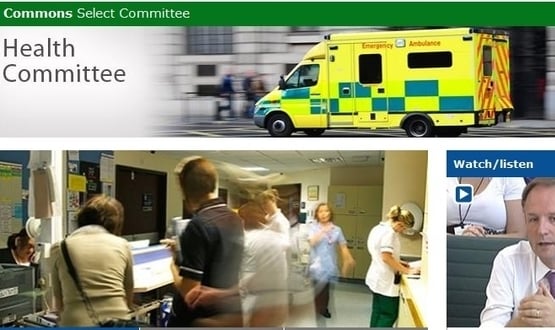‘Significant problems’ with data access in public health
- 1 September 2016

Public health services have been denied access to health data vital to doing their job, a report from the Commons health select committee says.
In the report into public health post-2013, released on Thursday, the committee argues that funding cuts to services since responsibility for public health shifted to local authorities are “a false economy, as they not only add to the future costs of health and social care but risk widening health inequalities”.
The committee says there have been real-terms cuts to public health since the transition, including a £200m reduction last year.
It also says this means there is a “a growing mismatch between spending on public health and the significance attached to prevention in the NHS ‘Five Year Forward View’ [the plan to close a £30 billion gap between funding and demand by 2020-21, issued in October 2014]”.
In response, the committee calls for public health funding to be ‘ring-fenced’, for councils to be given more power to directly improve the health of their local populations, and for ‘confused’ commissioning responsibilities to be sorted out.
To support this, it says more information should also be published on the performance of public health services, with standards against which they can be monitored.
However, the report specifically singles out data sharing as a further impediment to public health staff trying to do their job.
“There are significant problems with the public health teams not being able to access the information they need to do in order to do their jobs effectively…they [the problems] need to be addressed with urgency.”
The report also highlights tensions between Public Health England and NHS Digital about how data is distributed.
Professor John Newton, PHE’s chief knowledge officer and interim chair of National Information Board, told the committee that NHS Digital was not yet up to the job of collecting a disseminating health data centrally.
“The situation is that we have the information – the data – in one place and the people that have the capacity and capability to use it in another.”
NHS Digital needed to provide more access to local government data and the policy that all data health and social care data must be linked centrally should be reviewed, Newton told the committee.
The report said public health staff specifically raised issues with accessing mortality data, local level cancer data, screening rates, immunisation rates, personalised NHS data, and Hospital Episodic Statistics.
In the latter case access had been granted for some, but the process was described as “drawn out” and expensive. Data that was provided as often old by the time it reached staff and could not be linked to other data sets.
The committee recommended the Department of Health review its policy around requiring all health and social care data to be linked centrally, provide national support to help analyse local data, and asked NHS Digital to explain why public health teams were struggling to access certain data sets.




